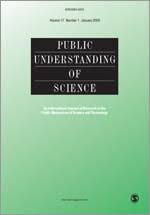Congratulations to my research team for our newly accepted papers in Public Understanding of Science and Energy Research & Social Sciences!
1) Ho, S. S., & Chuah A. S. F. (in press, 2022). Thinking, not talking, predicts knowledge level: Effects of media attention and reflective integration on public knowledge of nuclear energy. Public Understanding of Science.
Abstract: By applying the Cognitive Mediation Model, this study seeks to investigate factors influencing public knowledge of nuclear energy in Singapore. In addition, this study seeks to extend the Cognitive Mediation Model by explicating knowledge variable into four facets – general science knowledge, perceived familiarity, content nuclear knowledge, and contextual nuclear knowledge. Using data collected from an interviewer-led door-to-door survey with 1,000 Singapore citizens and permanent residents, we found that attention to TV news, website news, and social media news stimulated news elaboration and interpersonal discussion. However, attention to print newspaper was not associated with both news elaboration and interpersonal discussion. We also found that news elaboration could enhance factual knowledge such as general science knowledge, content nuclear knowledge, and contextual nuclear knowledge, while interpersonal discussion could enhance perceived familiarity. Theoretical and practical implications were discussed.
Abstract: Traditionally reliant on fossil fuels, Southeast Asian countries – Indonesia, Malaysia, and Singapore – plan to introduce cleaner energy (e.g., renewable energy) into their energy mix. To gauge public support, an understanding of their risk and benefit perceptions of energy technologies is necessary. In the absence of technical knowledge, lay people may form these perceptions based on existing mental models – these are individuals’ internal representations of the external world that can affect how they perceive various issues. Using the mental models approach, the current study examines and compares the public’s and energy experts’ mental models in an attempt to understand how risks and benefits of energy technologies are perceived, as well as gaps in the public’s understanding and information needs. We conducted online focus group discussions in Indonesia, Malaysia, and Singapore with 78 members of the public and 26 energy experts. The public and energy experts were found to have broadly similar considerations about energy security, economic and environmental impacts, and safety of energy technologies, but they differed in how they thought about them. While energy experts had relied on their topical expertise and existing evidence to form risk and benefit perceptions, the public had relied on other contextual factors to do so, such as their place-identities, religious beliefs, and personal values. Misleading analogies were also found to have played a role. The findings’ implications on public policies and communication strategies are discussed.

